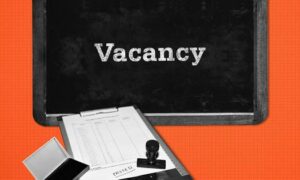
What is inflation?
Inflation refers to a phenomenon of rising prices or falling purchasing powers.
Price, as you may well be aware, is a function of demand and supply.
When the demand for a product or commodity goes up, its price goes up.
When the supply of a product or commodity goes up, its price comes down.
Get off the treadmill
Effect of inflation is bad enough even when you are younger, since you need to make sure that your earnings grow faster than the rate of inflation. Else it will appear that you are making more money than before, whereas in real terms, the purchasing power of your income will actually be falling.
While you are still working, the impact of inflation is partially, or entirely, offset by a continuous increase in income or profit.
But inflation is a killer once you have stopped earning. If you have not invested wisely, it might well happen that the nest egg you have kept aside to live on post-retirement may not even suffice you for a few months.
The purchasing power of your savings dwindles as goods and services increase in price.
How much will you need to compensate for the impact of inflation?
Unfortunately, it is not possible to predict inflation with any precision.
So, if the expected rate of inflation is say 6% (consistently year on year), as per the rule of 72, every 12 years (72/6 = 12), the prices would have doubled (or the purchasing power of money would become half in 12 years).
What costs 100 today will cost 200 after 12 years, 400 after 24 years, and 800 after 36 years.
Which means if you are 24 years old today, and plan to retire at the age of 60 (36 years later), you will need to earn 8 times the amount you are earning today to maintain your existing standard of living.
Assuming a life expectancy of say 85 years, the amount required closer to age 85 would be 32 times your current earnings.
This calculation is based on maintaining your existing standards. But as your standard of living would be rising year after year, you would ideally expect the levels of comfort that you were enjoying at the time of retirement. So, the amount required would be even higher.
What can be done?
What steps can you take to ensure that your savings will take care of all your needs, despite the threat of inflation?
You are planning for the unknown since inflation is a moving target that really cannot be predicted.
In order to protect your interests and your family’s well-being, you need to plan now to ensure the value of your investments stays ahead of inflation.
Which is why you must learn how to invest your money into avenues where the rate of earnings or appreciation is higher than the rate of inflation.
Inflation does not reduce the amount of money you have saved up. In fact, that amount may well be increasing due to interest earned. But it does reduce the buying power of that money.
With increasing costs of living, your ability to buy becomes lesser and lesser using the money available with you today.
If your money lies invested in a savings or even a fixed deposit account in a bank, the interest rate your money is earning is probably a lot less than the rate of inflation. Which means that the cost of goods and services is rising much faster than the interest you might be earning.
So what must you do?
Out of your concern for safety you may have invested in bonds and bank savings accounts. But these investments may not provide enough growth to outpace inflation.
You will have to move out of your comfort zone and invest in stocks and other instruments in order to add a level of growth to your portfolio that can keep you ahead of inflation.
Inflation is a fact of life. You, in your personal capacity, cannot do anything about it. You can only attempt to arrange your affairs to manage it.
Excerpted with permission from Start Early, Finish Rich: Finance Management for Kids and Young Adults, Anil Lamba, HarperCollins India.
📰 Crime Today News is proudly sponsored by DRYFRUIT & CO – A Brand by eFabby Global LLC
Design & Developed by Yes Mom Hosting






